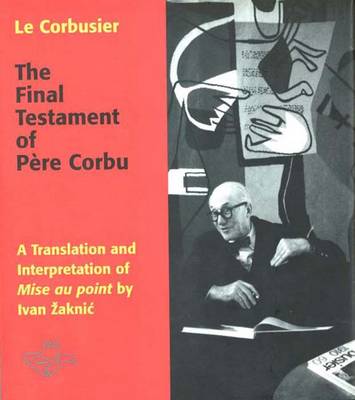Henry McBride Series in Modernism & Modernity
1 total work
Le Corbusier, one of the most influential architects of the 20th century, died in 1965 only weeks after completing "Mise au point", his last opus in the form of autobiographical reflections. Published posthumously, "Mise au point" is a curious and cryptic text, yet it sheds an light on the artist's mind and temperament. This book is an English translation of "Mise au point", an illustrated critical bilingual edition, and an attempt to integrate this document into Le Corbusier's life as a whole, especially its final years. In an introduction and in annotations, Ivan Zaknic shows how the themes of the text echo the contradictions of Le Corbusier's personality: determined to rebuke society and yet constantly courting its approval; devoted to serving the public and yet returning again and again to a solitary monastic ideal; distrusting professional institutions, the academy, and the government and yet stung by their willingness to pass him by.
Zaknic links the themes of this text with Le Corbusier's passion for certain literary works, especially "Don Quixote", and emphasizes the architect's many philosophical formulas for coming to terms with death - first that of his wife and then his own. Illustrated with photos and drawings, and also including an interview granted by Le Corbusier in the final months of his life, the volume should be welcomed by students of Le Corbusier's art, architecture, and urban planning, as well as by those interested in modernism and 20th-century culture.
Zaknic links the themes of this text with Le Corbusier's passion for certain literary works, especially "Don Quixote", and emphasizes the architect's many philosophical formulas for coming to terms with death - first that of his wife and then his own. Illustrated with photos and drawings, and also including an interview granted by Le Corbusier in the final months of his life, the volume should be welcomed by students of Le Corbusier's art, architecture, and urban planning, as well as by those interested in modernism and 20th-century culture.
